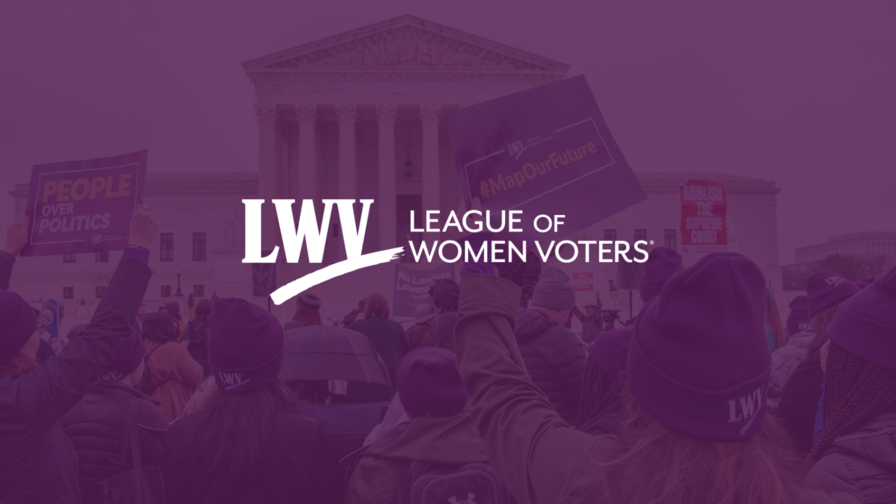Major End-of-Term Supreme Court Cases
Every June (and sometimes July), the League, our partners, and people around the country await the US Supreme Court’s (SCOTUS) opinions on critical issues like access to the ballot, redistricting, reproductive rights, and more. The Court’s term runs from October to June.
The US Supreme Court begins releasing opinions in argued cases around November of each term. Oral arguments usually end in April, and by then, the Court is steadily issuing opinions. Sometimes — as occurred recently in Alexander v. South Carolina State Conference of the NAACP, which came out in May — crucial decisions are issued before the last month of the term. But by June, the Court typically still has many decisions to release.
Stay Updated
Keep up with news about SCOTUS and more!
This timing means that the anniversaries of major cases largely occur in June. This blog reflects on several end-of-term cases from the last decade or so that have had a major impact on democracy. Given the hostility of the Roberts’ Court (the Court led by John Roberts as Chief Justice since 2005) towards civil rights, most of these anniversaries mark a decision that rolled back the clock on important protections against discrimination and the rights of historically disenfranchised communities.
Supreme Court Decisions on Voting & Elections
Racial Discrimination in Voting: Shelby County, Alabama v. Holder
First, we remember the devastating decision in Shelby County, Alabama v. Holder on June 25, 2013, which gutted the Voting Rights Act of 1965 (“VRA”) by rendering Section 5 ineffective. This decision removed fundamental protections against racial discrimination in voting.
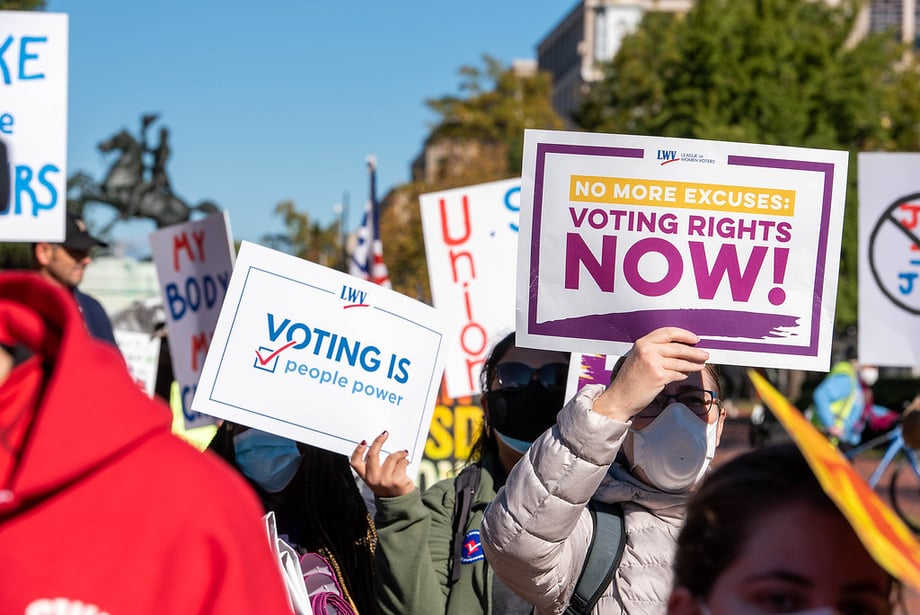
In the decade since, states formerly covered by Section 5 have implemented myriad limitations and restrictions on voting. We covered the devastating impact of Shelby County here and here. Specifically, those blogs explore the types of legislation that have passed with a disparate impact on voters of color and the current threats to voting rights a decade after Shelby County.
The Brennan Center for Justice recently reported that the turnout gap between white voters and voters of color has increased every year in the decade since the Shelby County decision, especially in counties previously subjected to federal oversight under Section 5. This suggests that racial discrimination in voting has not relented and, as a result, voters of color are increasingly silenced.
With Section 5 rendered ineffective, Section 2 of the VRA became even more critical for voters and voting rights advocates seeking to challenge harmful or discriminatory voting laws. Section 2 is used to challenge voting laws or policies that “result[] in a denial or abridgment” of the right to vote “on account of race or color.” Section 2 cases challenge either vote dilution — typically found in redistricting cases — or vote denial — which impacts the time, place, and manner of elections and voting. For example, a vote denial claim might be brought to challenge the closing of polling places that disproportionately impact Black voters.
Vote Denial: Brnovich v. Democratic National Committee
Not content with disabling Section 5, in 2021, SCOTUS took up a case on Section 2 vote denial in Brnovich v. Democratic National Committee. In a rare July decision — July 1 — the Court defined several “guideposts” for courts to consider when evaluating a Section 2 vote denial claim. These guideposts significantly increase the burden on voting rights plaintiffs challenging a discriminatory voting practice and raise the weight of the state’s purported interest in the eyes of the court. Affording undue weight to a state’s stated interest in passing a voting law could tend to rule against plaintiffs even when states cannot demonstrate a necessary and compelling interest to pass the discriminatory law.
For example, the most cited reason for passing anti-voter laws is the widely debunked myth of “voter fraud.” In Brnovich, the Court seems to overlook that States rarely have actual and relevant evidence of “voter fraud” when passing anti-voter laws.
The full impact of Brnovich remains to be seen in lower federal courts.
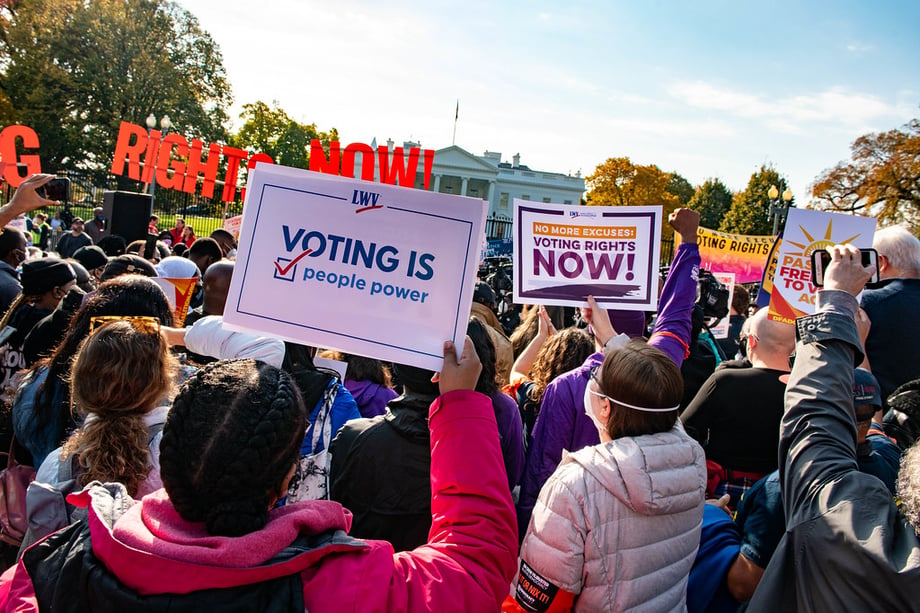
Vote Dilution: Allen v. Milligan
The Supreme Court considered the other side of Section 2 claims — vote dilution — during its 2022 term. In Allen v. Milligan, the Court considered whether a three-judge district court panel was wrong to find that Alabama violated Section 2 for failing to draw a second majority-Black congressional district. On June 8, in a surprise decision upholding Section 2, the Court held that Alabama did violate Section 2 and ordered a new map to be drawn that did not dilute the political power of Black Alabamians. Though the state tried to evade the Court’s order, Alabama now has a more equitable congressional map.
14th Amendment Challenges, LWV of North Carolina v. Rucho, and Common Cause v. Rucho
Although the Roberts’ Court issued a strong pro-voter opinion in Milligan, the Court has not ruled in favor of voting rights plaintiffs in other redistricting cases. In addition to Section 2 of the VRA, voters can challenge maps under the Fourteenth Amendment to the US Constitution. These claims argue that the mapmakers treated groups of constituents differently when drawing the map without a compelling reason.
These cases fall into two categories: claims of partisan gerrymandering and claims of racial gerrymandering. As noted above, the Court just addressed racial gerrymandering claims in Alexander, ultimately making it harder for plaintiffs to challenge racially discriminatory maps. When it comes to claims of partisan gerrymandering — claims that mapmakers unfairly placed residents in districts based on their likely partisan affiliation to ensure a partisan advantage — federal courts had heard and decided these claims for decades.
However, on June 27, 2019, the Court issued a devastating decision in a League case out of North Carolina, League of Women Voters of North Carolina v. Rucho, and a related case, Common Cause v. Rucho. Plaintiffs — including LWVNC — challenged North Carolina’s 2016 redistricting plan in federal court, arguing that the map was an unconstitutional partisan gerrymander. In a 5-4 decision, the Court held that claims of partisan gerrymandering are a “political question” that can’t be heard by federal courts. This decision eliminated a trusted path for voters to seek relief from illegal gerrymandering and forces plaintiffs into state courts. As explored by Allison Riggs, who argued the case for the League, this decision resulted in more maps that harm communities of color.
Despite these setbacks from the Court over the last several years, the League continues to bring litigation in federal court to protect voters and ensure equitable redistricting. From July 1, 2023, to the publication of this blog, the League has 34 active cases filed in federal court or concerning redistricting. Fifteen additional cases relating to redistricting or filed in federal court have been resolved during this time.
Support our legal work defending fair districts, voters' rights, and more!
SCOTUS Decisions on Reproductive Justice, Gun Safety, LGBTQIA+ Rights, and Affirmative Action
In addition to critical cases on access to the ballot and redistricting, the Court often waits until the last month of its term to release major decisions in the League’s urgent issues docket and other issues the League considers important. These issues include, but are not limited to, reproductive justice, LGBTQIA+ rights, gun safety, and affirmative action. Over the last decade, critical end-of-term decisions have been released that impact all of us, particularly historically disenfranchised people and communities.
Reproductive Freedom
Perhaps the most memorable decision of the past few years is one that broke the foundation of our fundamental rights by overturning the federal right to abortion, Dobbs v. Jackson Women’s Health Organization. While there was a leak of the draft opinion in May, the decision came on June 24, 2022.
The decision and its continued medical, emotional, legislative, and democratic impacts have been explored a great deal, including by the League. The right to abortion now largely depends on the laws in the state where you live, creating a patchwork of access across the country and effectively relegating people who can become pregnant to second-class citizenship.
The 2024 Reproductive Rights Case Before SCOTUS
At the two-year anniversary of this devastating decision, we are reminded that abortion will always be a state and federal issue.
Two decisions in the Court’s current term will impact the right to reproductive freedom. On June 13, 2024, the Court preserved legal access to the abortion drug mifepristone in FDA v. Alliance for Hippocratic Medicine when it found the challengers to lacked standing to sue. A future challenge to mifepristone is expected.
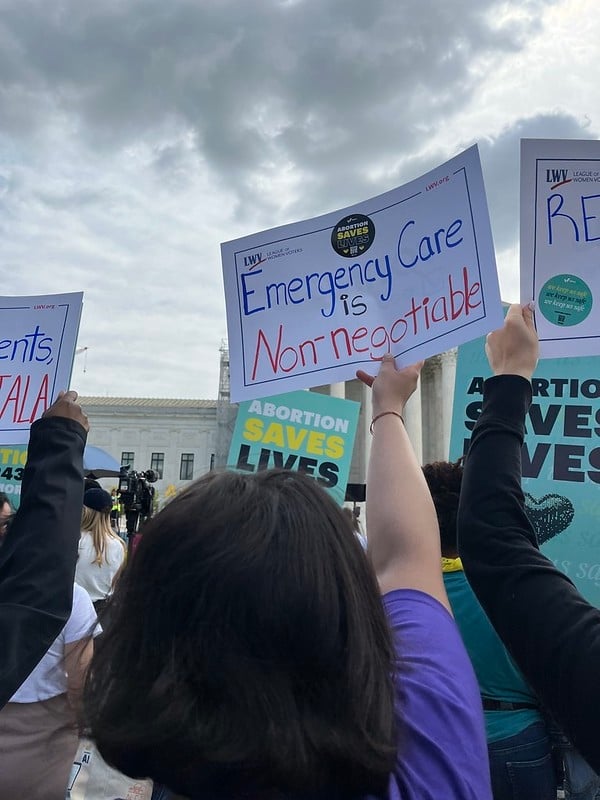
Additionally, as of this blog's publication, we are awaiting the Court’s decision in United States v. Idaho and United States v. Moyle, which consider whether the Emergency Medical Treatment and Labor Act (EMTALA) preempts Idaho’s current abortion ban, which prohibits abortion in all instances except to save the life of the pregnant person. EMTALA requires hospitals to provide stabilizing care to anyone experiencing a medical emergency. The League joined an amicus brief in the case, and a decision is expected before June 28, 2024.
LGBTQIA+ rights
On June 26, 2015, the Court issued a groundbreaking decision that ushered in marriage equality in the United States. Obergefell v. Hodges considered whether the Fourteenth Amendment to the US Constitution protects marriage between people of the same sex. At that time, many states defined marriage as a union “between a man and a woman.” In a 5-4 opinion authored by Justice Kennedy, the Court ruled these laws were unconstitutional.
Obergefell means that states cannot deny marriage licenses based on the sex of the couple, and states must recognize marriages performed in other states, including those between people of the same sex. Just two years earlier, on the same day — June 26, 2013 — the Court had struck down the Defense of Marriage Act (DOMA), a federal law defining marriage as between a man and a woman. In their decision in United States v. Windsor, SCOTUS ruled that DOMA was an unconstitutional deprivation of equal liberty as guaranteed by the Fifth Amendment.
On June 15, 2020, the Court took another step toward recognizing equality for the LGBTQIA+ community. In Bostock v. Clayton County, GA, the Court held that an employer who fires someone merely for being gay or transgender violates Title VII of the Civil Rights Act of 1964. This important case ruled for the first time that LGBTQIA+ employees cannot be fired for their sexual orientation or gender identity.
Despite these long overdue and hard-fought wins for equal rights, some members of the Court (like Justice Thomas in his Dobbs concurrence) have signaled an intent to roll back these groundbreaking wins. And we, as a country, are far from full equality for the LGBTQIA+ community.
Most recently, a pair of US Supreme Court decisions have ruled against equal rights in public accommodations. On June 4, 2018, the Court ruled in Masterpiece Cakeshop, Ltd. v. Colorado Civil Rights Commission, deciding in favor of a baker who refused to bake a wedding cake for a same-sex couple under the First Amendment right to freedom of expression. The Court reversed the Colorado Civil Rights Commission’s decision against the baker for violating the state’s anti-discrimination law.
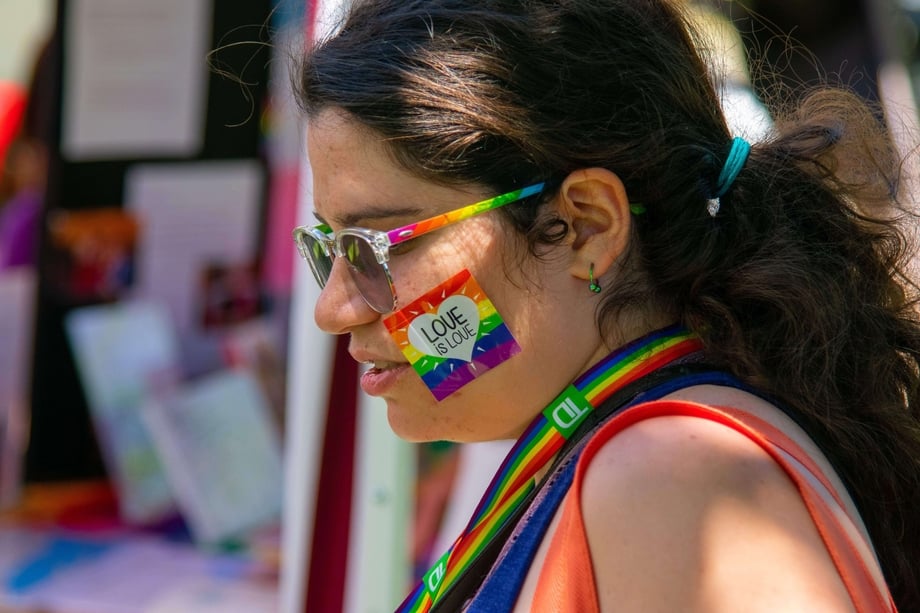
And on June 30, 2023, in a disturbing opinion (also out of Colorado), the Court again disguised discrimination as protected speech in 303 Creative LLC v. Elenis. The Court found that the Colorado Anti-Discrimination Law (CADA) violated the First Amendment rights to free speech and expression in the case of a website designer who planned to expand her business to wedding websites but wanted to refuse service to same-sex couples who sought wedding websites. Notably, no same-sex couple had sought these services from her. The League joined amicus briefs in both Masterpiece Cakeshop, Ltd. and 303 Creative v. Elenis.
Gun Safety
With the rise in voter intimidation at the polls, it’s clear that gun laws impact election safety. But on June 23, 2022, the US Supreme Court made it harder to keep guns out of public spaces.
In New York State Rifle & Pistol Association v. Bruen, the Court struck down a New York law requiring New Yorkers to show a justifiable reason for having a concealed-carry permit to carry guns in public places. In Bruen, the Court established a new analysis for courts to go through when presented with lawsuits challenging gun control laws under the Second Amendment; this puts similar gun control laws at risk in several states.
The Court continues to explore the limits — or lack thereof— of the Second Amendment. On June 21, 2024, in United States v. Rahimi, the Court rejected a challenge to a federal law barring those subject to a domestic violence restraining order from possessing a gun. This is a victory for gun safety, as it limits access to firearms for those who have committed domestic abuse.
Affirmative Action
On June 29, 2023, the Court issued another watershed opinion, this time on affirmative action. Despite prior precedent upholding the consideration of race in admissions for colleges and universities, the Court in Students for Fair Admissions v. Harvard declared such consideration illegal under the Fourteenth Amendment. The League joined an amicus brief urging the Court to uphold precedent allowing race-conscious admissions and citing the numerous benefits of racial diversity on campuses. This decision—and the Court’s decision in Alexander — reflects the Roberts’ Court’s insistence that laws be race-neutral, a misguided position given our country’s foundation of white supremacy and racial discrimination.
The Supreme Court has a history of releasing major decisions — including those that severely restrict civil rights and voting rights — in June, and this term will be no exception. As we await the final decisions of the 2023 term, keep up with the LWVUS Legal Center for details on all the League’s cases.
The Latest from the League
WASHINGTON — Today, the League of Women Voters of the United States issued the following statement in response to the Supreme Court ruling in FDA v. Alliance for Hippocratic Medicine. The decision ensures continued access to the medication abortion drug mifepristone:
The Supreme Court case Moyle v. United States could leave women and people who can become pregnant at risk of permanent bodily harm, creating a patchwork in which some states provide reproductive freedom and equal citizenship for people who can become pregnant while others don’t.
Abortion will not and should not be left to the whim of state legislatures, particularly when people’s health and lives are at risk.
The League is invested in and carefully watching an important redistricting case, Alexander v. South Carolina State Conference of the NAACP. The case is an appeal from a ruling striking down South Carolina’s congressional map as an unconstitutional racial gerrymander.
Sign Up For Email
Keep up with the League. Receive emails to your inbox!
Donate to support our work
to empower voters and defend democracy.





